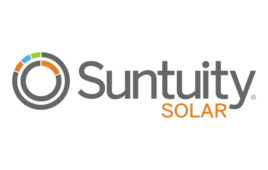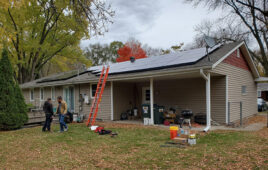
Virginia is the latest state to make a renewable energy commitment thanks to Gov. Ralph Northam’s executive order.
Vote Solar says Massachusetts must triple SMART program to reach climate goals
Boston, Massachusetts
Vote Solar released a report that found the policy environment in Massachusetts is slowing the growth of the state’s solar industry and may make it impossible to accomplish its renewable energy goals. The advocacy organization says the state should triple the Solar Massachusetts Renewable Target (SMART) program to 4,800 MW to get back on track.
Vote Solar urges FPL to make SolarTogether program more equitable
Tallahassee, Florida
Vote Solar was busy last month. The group filed testimony with the Florida Public Service Commission asking it to allot 100 MW of SolarTogether capacity for at least 20,000 low-income households. The group says the existing plan boosts utility shareholder profits and puts solar out of reach for Floridians with higher-than-average energy burdens.
California outlaws city taxes on rooftop solar energy
Sacramento, California
Governor Gavin Newsom recently signed a law that ensures financial protection for California rooftop solar customers. The new law prohibits cities and counties from taxing the energy generated by rooftop solar panels used by homeowners or businesses. It passed both the house and senate with unanimous support.
U.S. senators introduce supplemental legislation for SolarAPP
Washington, D.C.
Bipartisan senators introduced the American Energy Opportunity Act, which aims to give local governments the tools to simplify and standardize clean energy permitting for residents and businesses. The legislation builds on the Solar Automated Permit Processing (SolarAPP) initiative that was spearheaded by SEIA and the Solar Foundation last year. TSF’s SolSmart program has been working toward similar goals separately for some time.
Louisiana loses net metering
Baton Rouge, Louisiana
In September, the Louisiana Public Service Commission voted to end the one-for-one net-metering structure that had been in place since 2007. Existing rooftop solar customers will be grandfathered in for 15 years, but future solar customers will only receive the avoided cost, or about 3 cents per kWh, for exporting energy back to the grid. Residents of the City of New Orleans are not affected because they are regulated by the City Council, not the Public Service Commission, according to WWL.
California invests $120 million in low-income solar with new program
Sacramento, California
The California Public Utilities Commission (CPUC) approved the new Disadvantaged Communities – Single-family Solar Homes (DAC-SASH) program that aims to increase adoption of solar power in disadvantaged communities. It will provide $8.5 million in incentives annually through 2030 to reduce the cost of going solar for qualifying households. DAC-SASH is administered by GRID Alternatives, so solar job training opportunities will be incorporated into every project.
Virginia governor issues executive order for 30% renewables by 2030
Richmond, Virginia
Virginia Governor Ralph Northam issued an executive order to develop a plan to produce 30% of the state’s energy from renewable sources by 2030, and 100% from carbon-free sources by 2050. The order also requires developing an energy workforce plan to ensure disadvantaged communities have access to careers in clean energy.
San Diego City Council forms community choice aggregation program
San Diego, California
The San Diego City Council voted to form a community choice aggregation program to offer residents in San Diego and up to four other cities a choice other than San Diego Gas & Electric for their power source, according to the San Diego Union Tribune. The new CCA, which doesn’t have a name yet, is expected to offer customers rates that are about 5% lower than SDG&E rates. The CCA should be active starting in 2021.
Kentucky extends public comment period for new net-metering law
Frankfort, Kentucky
The Kentucky Public Service Commission has extended the time period to Oct. 15 that the public can submit written comments on the state’s net-metering changes. The new net-metering state law gives the PSC responsibility to set how much utilities can charge solar customers for the electricity they send back to the grid, according to WFPL. The new rates haven’t been decided yet, but the law takes effect in 2020.
Vote Solar urges California not to extend life of fossil fuel plants
Sacramento, California
The California Public Utility Commission (CPUC) issued a proposed decision that would allow existing fossil fuel plants to operate until 2023 instead of closing in 2020. The CPUC does plan to replace the aging plants with 2,500 MW of clean energy capacity eventually, but Vote Solar says extending the life of these plants even for three years could thwart the state’s goal of reaching 100% renewable energy by 2045.





Tell Us What You Think!